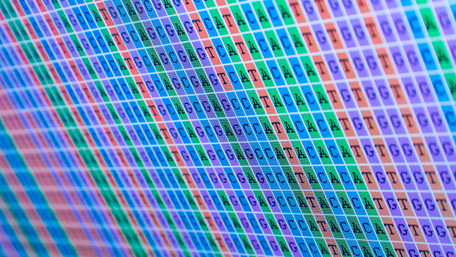
07/01/2020
Hot Topics of the Day are picked by experts to capture the latest information and publications on public health genomics and precision health for various diseases and health topics. Sources include published scientific literature, reviews, blogs and popular press articles.
Sign up MyPHGKB to receive the daily hot topic email alert.
Archived Hot Topics of the Day By Date
Excess Deaths From COVID-19 and Other Causes, March-April 2020
SH Woolf et al, JAMA, July 1, 2020
Mortality and Morbidity-The Measure of a Pandemic
JW Zylke et al, JAMA, July 1, 2020
Covid-19 vaccine shows positive results
M Herper, STAT News, July 1, 2020
Covid-19 sickens seniors differently. Here’s why.
JW Rowe, Washington Post, June 29, 2020
The effect of frailty on survival in patients with COVID-19 (COPE): a multicentre, European, observational cohort study
J Hewitt et al, Lancet Public Health, June 30, 2020
Most People With Coronavirus Won’t Spread It. Why Do a Few Infect Many?
K Zimmer, MY Times, June 30, 2020
Combining liquid biopsies and PET-CT for early cancer detection
SQ Wong et al, Nature Medicine, June 29, 2020
Clinical outcomes of a genomic screening program for actionable genetic conditions
AH Buchanan et al, Genetics in Medicine, June 30, 2020
Economic value of exome sequencing for suspected monogenic disorders
BS Ferket et al, Genetics in Medicine, June 30, 2020
Genomic analyses implicate noncoding de novo variants in congenital heart disease
F Richter et al, Nature Genetics, June 29, 2020
Ending the Diagnostic Odyssey—Is Whole-Genome Sequencing the Answer?
AC Wu et al. JAMA Pediatrics, June 2020
Genome-wide association studies identify 137 loci for DNA methylation biomarkers of ageing
DL McCartney et al MEDRXIV, June 30, 2020
Data science and machine learning, mathematical and statistical methods
J Rocklov et al, IJE, June 2020
Disclaimer: Articles listed in Hot Topics of the Day are selected by Public Health Genomics Branch to provide current awareness of the scientific literature and news. Inclusion in the update does not necessarily represent the views of the Centers for Disease Control and Prevention nor does it imply endorsement of the article's methods or findings. CDC and DHHS assume no responsibility for the factual accuracy of the items presented. The selection, omission, or content of items does not imply any endorsement or other position taken by CDC or DHHS. Opinion, findings and conclusions expressed by the original authors of items included in the Clips, or persons quoted therein, are strictly their own and are in no way meant to represent the opinion or views of CDC or DHHS. References to publications, news sources, and non-CDC Websites are provided solely for informational purposes and do not imply endorsement by CDC or DHHS.
- Page last reviewed:Feb 1, 2024
- Page last updated:Apr 25, 2024
- Content source:









